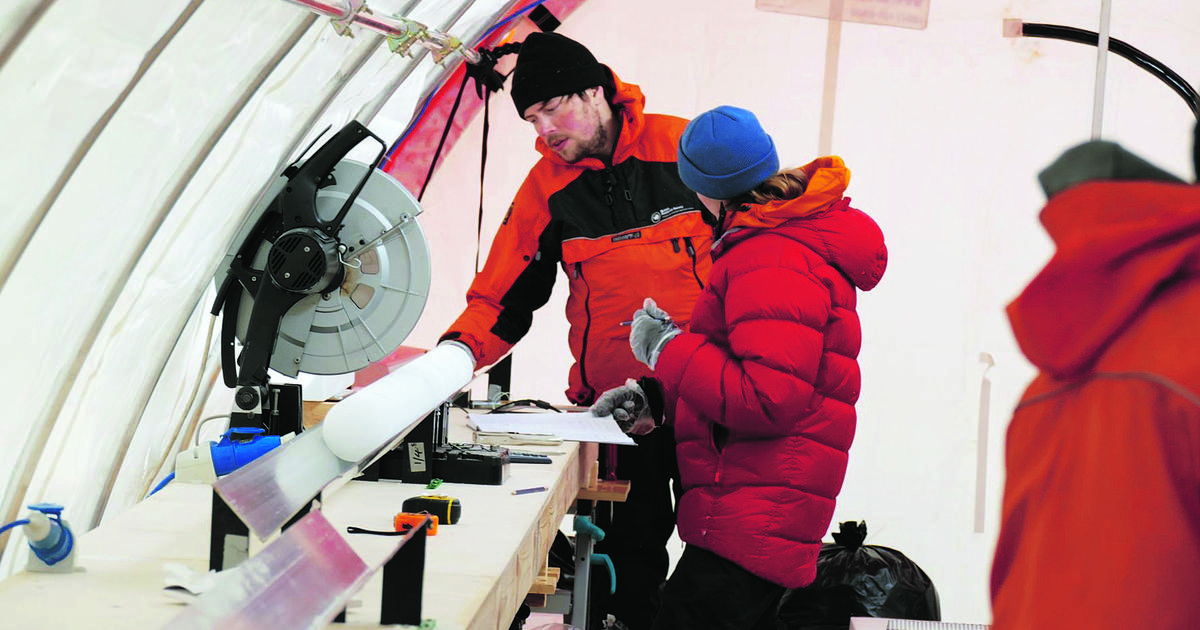Enlarge image
Geothermal power plant in Iceland, there is also one on the site for the separation of carbon dioxide from the air
Photo: Arni Saeberg / CarbFix
Climate neutrality by 2045 - that is the new goal of the federal government.
To achieve this, emissions in all sectors of the economy and in transport must fall as well as those in private households.
The concrete measures will be bitterly disputed after the general election at the latest.
In addition to avoiding greenhouse gases, the active removal of CO₂ from the atmosphere could also make a contribution.
This applies above all to emissions that cannot be prevented, for example from air traffic.
Actively removing CO₂ from the air, there are a number of ideas for this:
the direct extraction of CO₂ from the air and storage in the ground,
massive reforestation programs or
the spreading of certain finely ground rocks, for example on agricultural land.
Then there is “Bio Energy with Carbon Capture and Storage”, or BECCS for short.
Plants are grown in huge fields and later burned in power plants.
The resulting CO₂ is captured and stored underground.
Most scenarios can already only be achieved with the help of such negative emissions.
This applies to both the 1.5 degree target of the Paris Climate Agreement and many of the scenarios that outline the way to at least achieve the 2 degree target.
Sometimes the reference to technical solutions for removing carbon dioxide from the atmosphere, but also to opponents of a more radical climate policy, seems to serve as an argument for “business as usual”.
But when it comes to climate protection, is there a difference between a ton of CO₂ that is saved and is therefore not produced at all compared to one that was previously emitted but later removed from the air with technical aids? A current study by a team led by Kirsten Zickfeld from Simon Fraser University in Burnaby, Canada, published in the journal Nature Climate Change, at least suggests this, even if some questions remain unanswered.
The researchers conclude that removing carbon dioxide from the atmosphere could have a less powerful effect on the progress of climate change than avoiding emissions.
For their work, the team used a computer model and looked at how the earth's carbon cycle changes when a large amount of carbon is added or removed.
The scientists took ten to one hundred times the current annual global emissions from the system at once - or added the amount in addition.
Then they compared the development of the simulated CO2 concentration and the temperatures over 1000 years.
Reduction of emissions as the "means of choice"
The CO2 concentration showed that the removal of carbon dioxide was less effective than the increase. This would mean that offsetting CO2 emissions with negative emissions could lead to a different climate result than completely avoiding these CO2 emissions. For the global mean temperature, however, the result was partially reversed: in scenarios with high withdrawals or emissions, a ton of CO2 removed accounted for more than a ton of CO2 saved. The researchers do not comment on the reasons for the difference.
"It is clear that the method of choice is to reduce emissions, which must be significantly accelerated," commented researcher Judith Hauck from the Alfred Wegener Institute for Polar and Marine Research (AWI) in Bremerhaven, who was not involved in the study. Negative emission technologies are fraught with great uncertainty, especially about undesirable side effects. "In addition, at the moment and for the foreseeable future, they are not available on the scale in which they are tested, for example, in this article."
The researcher Oliver Geden from the Science and Politics Foundation in Berlin, who was also not involved, commented on the results: “One might be tempted to interpret the study as an argument against net negative emissions or even CO2 extraction itself. But the result of the study, that under certain circumstances very large amounts of extracted CO2 are not as effective as the same amount of CO2 emissions, can also be interpreted the other way round - we need even more CO2 extraction than we thought in order to determine the CO2 concentration in the atmosphere. ”According to Geden, it is not because of the possibility of negative emissions in the distant future that humanity is still emitting so much today.








